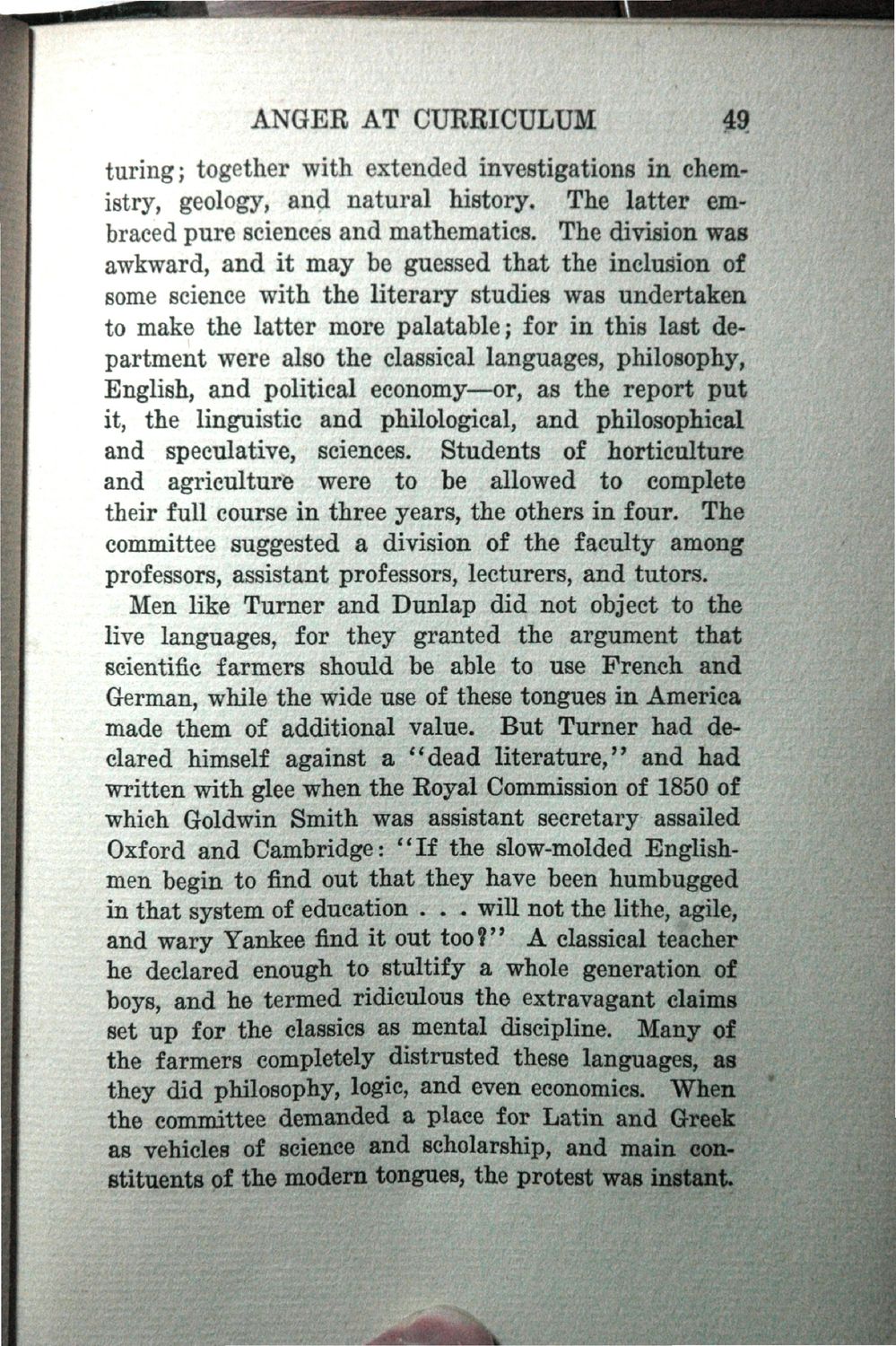| |
| |
Caption: Book - History of the University (Nevins)
This is a reduced-resolution page image for fast online browsing.

EXTRACTED TEXT FROM PAGE:
ANGER AT CURRICULUM £9 taring; together with extended investigations in chemistry, geology, and natural history. The latter embraced pure sciences and mathematics. The division was awkward, and it may be guessed that the inclusion of some science with the literary studies was undertaken to make the latter more palatable; for in this last department were also the classical languages, philosophy, English, and political economy—or, as the report put it, the linguistic and philological, and philosophical and speculative, sciences. Students of horticulture and agriculture were to be allowed to complete their full course in three years, the others in four. The committee suggested a division of the faculty among professors, assistant professors, lecturers, and tutors. Men like Turner and Dunlap did not object to the live languages, for they granted the argument that scientific farmers should be able to use French and German, while the wide use of these tongues in America made them of additional value. But Turner had declared himself against a "dead literature," and had written with glee when the Royal Commission of 1850 of whieh Goldwin Smith was assistant secretary assailed Oxford and Cambridge: "If the slow-molded Englishmen begin to find out that they have been humbugged in that system of education . . . will not the lithe, agile, and wary Yankee find it out too?,! A classical teacher he declared enough to stultify a whole generation of boys, and he termed ridiculous the extravagant claims set up for the classics as mental discipline. Many of the farmers completely distrusted these languages, as they did philosophy, logic, and even economics. When the committee demanded a place for Latin and Greek as vehicles of science and scholarship, and main constituents of the modern tongues, the protest was instant
| |